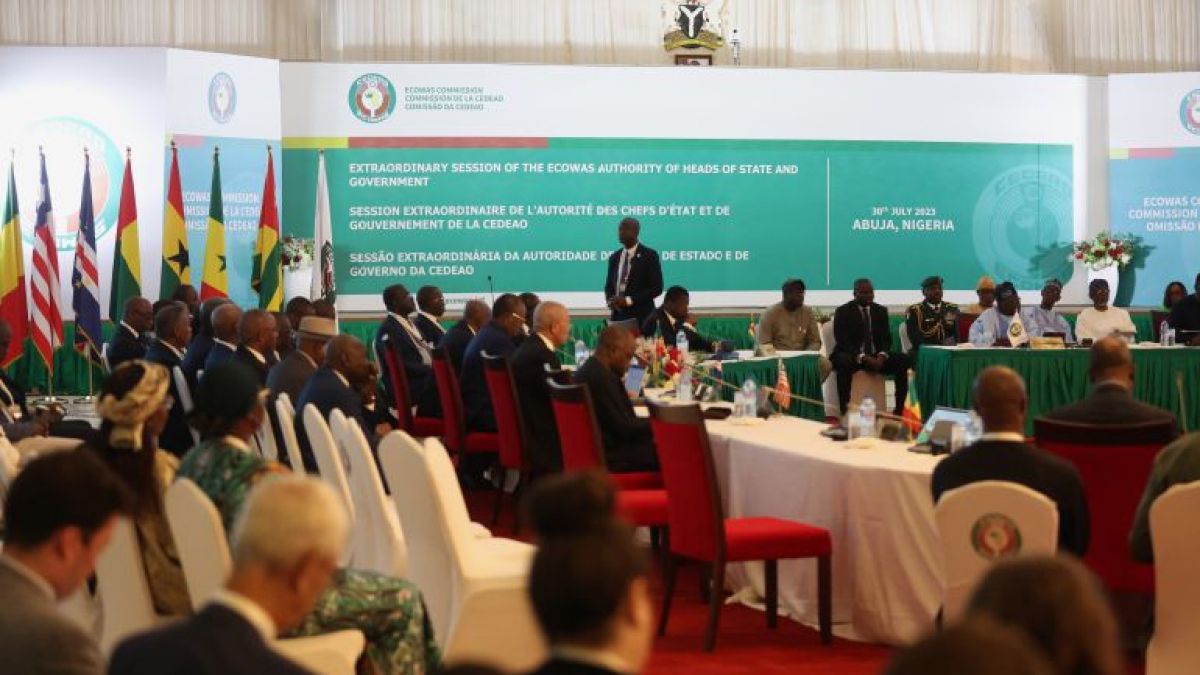ECOWAS Takes Center Stage in Niger’s Political Crisis Following Military Coup
As the political crisis in Niger intensifies after the recent military coup, the Economic Community of West African States (ECOWAS) is garnering attention for its involvement in the situation. Given ECOWAS’ history of dealing with similar crises and coups, the organization’s diplomacy and military intervention are being closely monitored.
Experts regard ECOWAS as the most effective regional organization in Africa when it comes to achieving regional integration goals across various sectors, including the economy, security, politics, and culture. The organization views regional peace and security as crucial for economic revitalization and social cohesion, and it has made significant efforts to achieve this.
The prioritization of security within ECOWAS is not unfounded. With the exception of Cape Verde and Senegal, 15 of its member countries have experienced military coups since gaining independence, leading to continuous unrest. Therefore, finding a solution to this challenge is imperative. In 1999, ECOWAS issued a protocol outlining mechanisms for conflict prevention, management, resolution, and the maintenance of peace and security. The agreement provides a framework for the organization to intervene in member states in the event of an unconstitutional change in government.
ECOWAS has a track record of diplomatic and military intervention in conflict situations. When civil war erupted in Liberia in 1989, the organization intervened diplomatically, ultimately leading to a political settlement. In 1991, during the political crisis in Sierra Leone, ECOWAS initially deployed diplomatic efforts. However, when these peace initiatives failed, the organization resorted to military intervention, which ultimately resulted in a political settlement. Additionally, when armed conflicts arose between political factions in Guinea-Bissau and Ivory Coast, ECOWAS employed limited military intervention alongside diplomatic measures to foster political resolutions.
In December 2022, ECOWAS announced the establishment of a new military force specifically designed to address unconstitutional changes in government, maintain security, and counter extremism and terrorism. This force, consisting of 5,000 soldiers, incurs an annual cost of $2.3 billion for deployment as required. ECOWAS has outlined scenarios for intervention, including the restoration of constitutional order, the reinstatement of civilian rule, and the counteraction of extremism and terrorism.
In light of the recent military coup in Niger, ECOWAS is being put to the test, having successfully maneuvered through Mali and Burkina Faso’s previous crises. During an emergency meeting, the group issued a one-week ultimatum for the coup authorities to reinstate President-elect Mohammad Bazum and end the coup. Additionally, ECOWAS implemented financial sanctions on the coup leader, froze business and financial transactions with Niger, imposed a travel ban on coup-related officials, and warned of potential use of force to restore constitutional order. The group also closed all land and air borders with Niger.
However, ECOWAS’ ability to take military action hinges on the support of President Bazoum, who remains opposed to the coup but lacks the necessary backing to prompt intervention from the organization. Presently, ECOWAS is left with political and economic sanctions, diplomatic isolation, and negotiations with the coup authorities to restore constitutional rule, even if temporarily. It may require the involvement of allies and key actors to resolve the situation.
Interestingly, the African Union (AU), along with ECOWAS, has a role in addressing coup-related crises on the continent. However, due to the AU’s adherence to the principles of non-interference in member states’ internal affairs and respect for regional sovereignty, it often struggles to find a definitive solution to coup-related crises. The AU has resorted to freezing membership and barring participation in coalition activities for countries experiencing unconstitutional changes, with a six-month duration allotted for a return to constitutional governance.
The AU and its military arm, the African Council for Peace and Security, continue to face challenges when dealing with the military establishments of African nations due to the predominance of military influence. This has prompted calls for a review of the Commonwealth Act, which addresses interventions in the case of military coups and unconstitutional changes.
In the midst of Niger’s political crisis, ECOWAS and the AU are at the forefront of efforts to restore constitutional order, maintain regional peace, and ensure the stability of the country. The outcome of their involvement will shape the future trajectory of Niger and could potentially influence approaches to coup-related crises across the continent.
